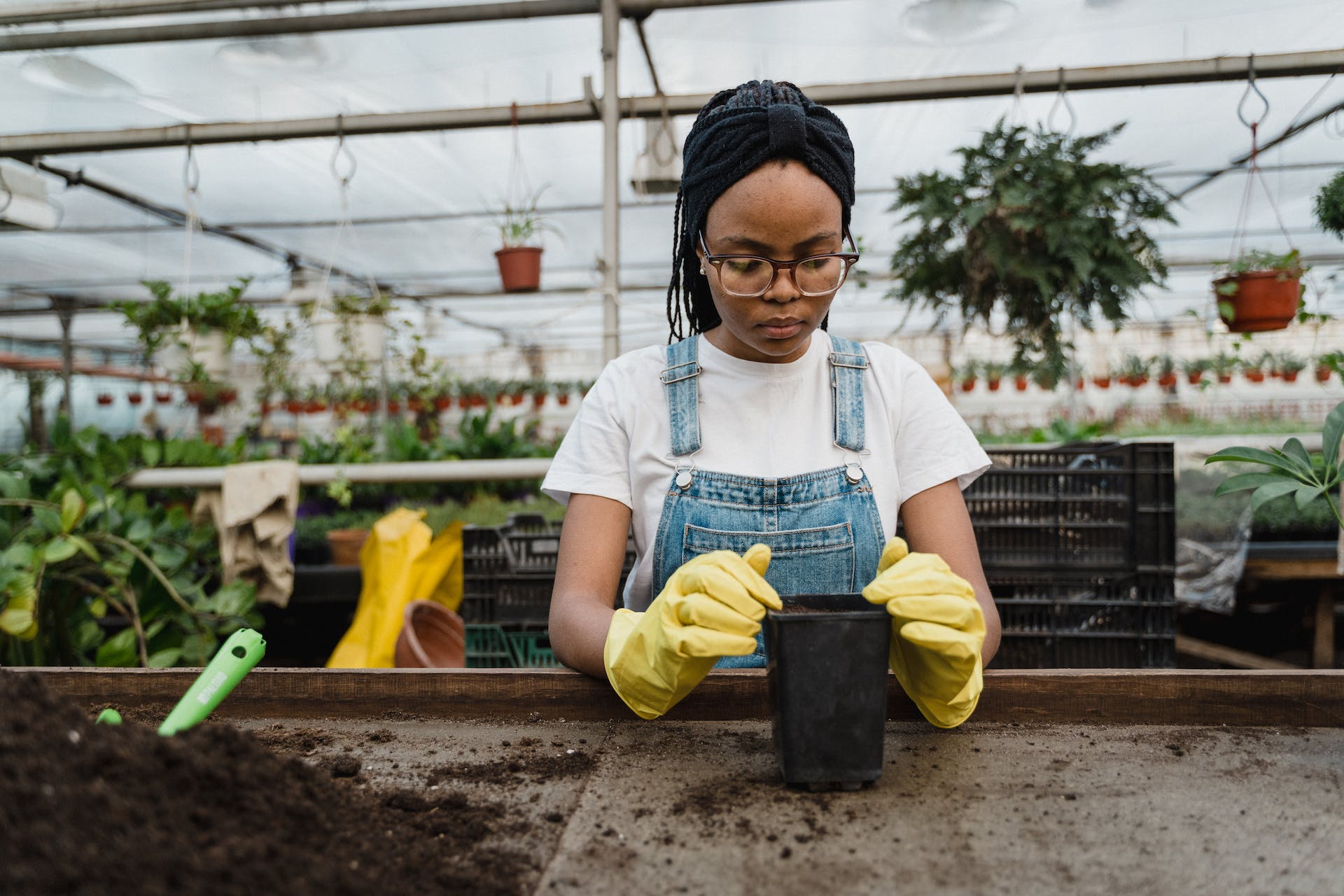Do you want your own herb garden? Looking to make your kitchen garden even better? You can add that extra flavor to your cooking with a herb garden at your home.
Embarking on the journey of cultivating your own herbs is both gratifying and adds a delightful dimension to your culinary and gardening experiences. Regardless of your available space, whether it’s a spacious backyard or a compact apartment balcony, growing herbs at home is a straightforward and enjoyable endeavor.
In this beginner’s guide to herb garden, let’s explore the right approach to cultivating a variety of herbs, both indoors and outdoors.
Selecting the Right Herbs
Start by choosing herbs that align with your culinary preferences and local climate. Popular choices for beginners include basil, mint, rosemary, thyme, and parsley. Consider your available space and whether you’ll be cultivating them indoors or outdoors.
Considering the diverse growing habits of herbs is crucial for proper placement. Whether low-growing varieties as ground covers or tall ones requiring containment, knowing their habits aids in effective garden planning. Aligning herb choices with your garden’s purpose, be it culinary or ecosystem enhancement, further influences how you grow them.
Understanding Herb Types
Herbs fall into three main categories: annual, biennial, and perennial. Exploring these distinctions allows gardeners to make informed decisions based on their preferences and gardening goals. Some herbs require replanting every year, while others offer the convenience of returning each spring.
Distinguishing between different types of herbs, such as evergreen, herbaceous, annual, and biennial, provides insights into their characteristics and care requirements. Delving into popular examples like sage, rosemary, thyme, oregano, chives, basil, cilantro, parsley, and dill offers a comprehensive understanding of each herb’s unique features.
Selecting Herbs for Your Garden
Considering the diverse growing habits of herbs is crucial for proper placement. Whether low-growing varieties as ground covers or tall ones requiring containment, knowing their habits aids in effective garden planning. Aligning herb choices with your garden’s purpose, be it culinary or ecosystem enhancement, further influences how you grow them.
Choosing Location and Soil for Herbs
Understanding the Mediterranean origin of many herbs helps in providing optimal conditions for their growth. These plants thrive in warm, sunny areas with well-draining moist soil. Techniques such as amending soil with compost or utilizing raised beds ensure a suitable environment for herb cultivation.
Choosing the Right Containers
For indoor herb cultivation, opt for containers with drainage holes to prevent overwatering. Outdoor herbs can be grown in raised beds, pots, or directly in the ground. Ensure the containers are spacious enough to accommodate the herbs’ root systems.
Quality Soil and Potting Mix
Utilize a well-draining potting mix with a balanced pH for container gardening. For outdoor herbs, enhance the soil with organic matter to boost fertility. High-quality soil is fundamental for robust herb growth.
Ideal Sunlight Conditions
Most herbs thrive in full sunlight, so select a location that receives at least 6-8 hours of sunlight daily. For indoor herbs, position them near a sunny window or use artificial grow lights to supplement natural light.
Watering Routine
Herbs generally prefer slightly moist soil. Water them when the top inch of soil feels dry. Be cautious not to overwater, as this can lead to root rot. Outdoor herbs may require more frequent watering during hot weather.
Pruning and Maintenance of Herbs
To ensure the health and shape of your herbs, regular pruning is essential. Removing dead parts encourages healthy growth, and understanding the appropriate tools for pruning is crucial. Pruning techniques vary depending on the size of the herb plant, ensuring a thriving and aesthetically pleasing garden.
Regular pruning stimulates bushier growth and prevents herbs from becoming leggy. Harvest herbs in the morning when their essential oils are most concentrated. Use sharp scissors or pruning shears to prevent damage to the plants.
Fertilizing Guidelines
Herbs don’t demand heavy fertilization. Use a balanced, all-purpose fertilizer sparingly, following the package instructions. Excessive fertilization can adversely impact the flavor and aroma of the herbs.
Dealing with Pests
Stay vigilant for common pests like aphids and spider mites. Address pest issues with natural remedies such as neem (Azadirachta indica) oil or insecticidal soap, avoiding the use of harsh chemicals.
Harvesting Herbs at the Right Time
Timing is key when harvesting herbs to ensure the highest potency of flavors and oils. Harvesting just before the herb blooms, when oil levels are at their peak, enhances the quality of the harvest. Storing herbs in the right containers, such as baskets or paper bags, preserves their freshness.
Overwintering Indoors
Some herbs may not survive harsh winter conditions. Consider bringing potted herbs indoors during winter or opting for cold-hardy varieties if you live in a colder climate.
Experimenting with Companion Planting
Some herbs can act as natural pest repellents for other plants. Experiment with companion planting to enhance the overall health of your herb garden.
Conclusion
Embrace the world of herbs and discover the joy of incorporating these versatile plants into your garden. With their varied scents, flavors, and uses, herbs can elevate your culinary experiences and contribute to a healthier ecosystem.
Cultivating your own herbs is a fulfilling experience that not only enhances your culinary creations but also connects you with the joy of nurturing living plants. By following this beginner’s guide, you’ll be well on your way to cultivating a thriving herb garden, whether it’s on your kitchen windowsill, balcony, or backyard. Relish the process, savor the flavors, and delight in the freshness of homegrown herbs. Whether you’re a seasoned gardener or a beginner, the rewarding journey of herb gardening awaits.

